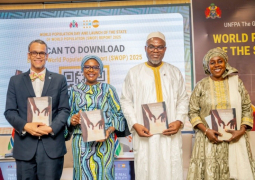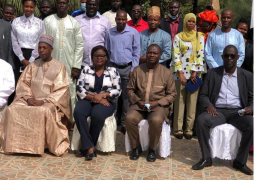Gaindesat liftoff took place this Friday, August 16, 2024 at 6:45 p.m. The Falcon 9 rocket took off from Vandenberg, California, and put 116 mini satellites and cubesats, including the GAINDESAT-1A, into orbit. This launch represents not only an achievement for Senegal, but also a proud moment for the entire African continent. Senegal thus becomes the second French-speaking sub-Saharan state, after Djibouti, to have its own satellite.
Gaindesat is responsible for crucial missions for the development of Senegal. Among its main missions is the collection of data for various state agencies, including:
The Directorate of Water Resources Management and Planning (DGPRE): Gaindesat will provide valuable data to better manage the country's water resources. The National Agency for Civil Aviation and Meteorology (Anacim): The satellite will help improve weather forecasts and aviation safety. The Office of Lakes and Watercourses (OLAC): Gaindesat will contribute to the monitoring and management of Senegal’s lakes and rivers.
The launch of Gaindesat demonstrates Senegal’s commitment to innovation and technological progress. It represents an important milestone in the promotion of science and technology in Senegal, while strengthening the country's independence in the field of observation and management of its natural resources.
The Senegalese authorities and engineers involved in the project were pleased with this success. The launch of Gaindesat opens new perspectives for Senegal, both nationally and internationally, by positioning the country as a major player in the space sector in Africa.
Source: Kerr Fatou
Read Other Articles In Headlines




